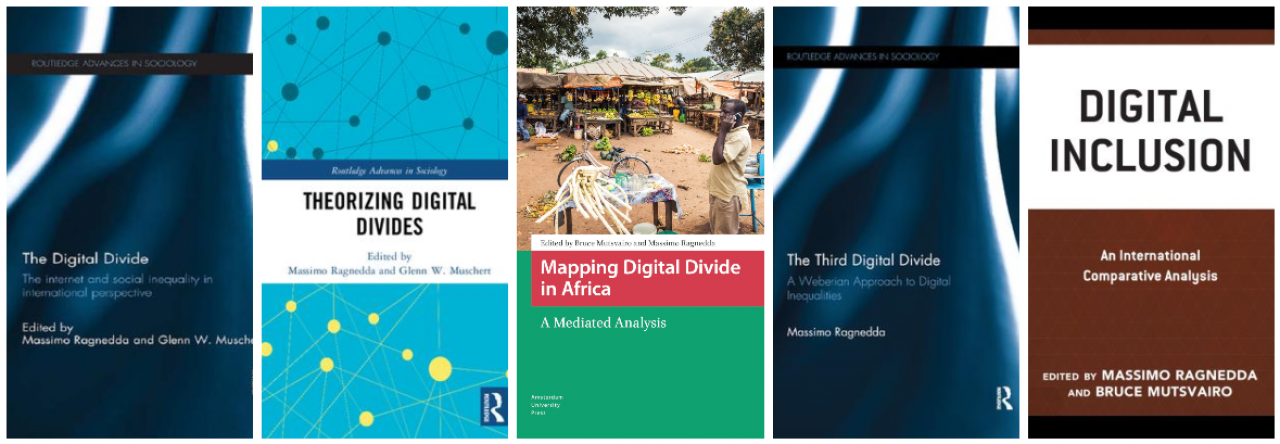Special Issues
Special Issue: Emerging Forms of Digital Inequalities. The Role of Digital Capital in Shaping Access, Power, and Opportunities in the Digital Era. Journal: World of Media
Scope and Focus:
This special issue explores how digital capital, defined as the skills, knowledge, and resources needed to effectively navigate and leverage digital technologies, is increasingly central to understanding new forms of digital inequalities. With the digital landscape evolving rapidly due to advancements in AI, data-driven platforms, and networked communication, the special issue will analyze how disparities in access to and utilization of digital capital contribute to broader social, economic, and political inequalities.
Key Themes for the Special Issue:
The evolving nature of Digital Capital. Examining the intersection of digital capital with traditional forms of capital (economic, social, and cultural) and how they reinforce or challenge each other in shaping life opportunities.
Uneven Distribution of Digital Capital Across Social Groups. Analyzing the unequal distribution of digital capital across different demographic groups (based on race, gender, socioeconomic status, geography) and its impact on social mobility. How do digital literacy and access to technology reproduce existing inequalities, especially in educational and employment contexts?
The Role of Digital Capital in AI and Automation. Exploring how those with advanced digital skills and knowledge are better positioned to benefit from AI and automation, while others face exclusion from the labor market. What are the implications for the workforce, and how can policies promote equitable access to digital capital in the face of technological change?
Second-Level Digital Divide and Digital Capital. Moving beyond the first-level digital divide (access to technology), this theme focuses on the second-level digital divide—the disparities in how people use technology and the benefits they derive from it. How do variations in digital skills and digital capital influence the capacity to extract meaningful economic, social, and cultural value from digital tools?
Educational Systems and the Cultivation of Digital Capital. Assessing the role of education systems in cultivating digital capital, with a focus on how disparities in digital literacy education contribute to long-term inequalities. Case studies of successful educational interventions aimed at closing digital skill gaps and empowering underprivileged communities through digital literacy programs.
Platform Economies and the Unequal Distribution of Digital Capital. Examining the role of digital platforms in creating new economic opportunities for those with digital capital while marginalizing those without it. How do gig economies, content creation, and influencer economies accentuate digital inequalities based on access to digital knowledge, skills, and networks?
The Intersection of Digital Capital and Algorithmic Power. Exploring how algorithms and AI technologies are reshaping power dynamics, particularly for individuals and groups with high levels of digital capital. How do algorithmic systems reinforce digital inequalities by privileging those with advanced technological skills, knowledge, and the ability to manipulate these systems?
Digital Capital in the Global South: Opportunities and Challenges. Case studies from the Global South to analyze how digital capital is distributed and how local initiatives are attempting to address digital inequalities. How are developing countries navigating the challenges of building digital capital amidst structural inequalities such as poor internet infrastructure, economic disparities, and limited access to digital education?
Special Issue: Artificial Intelligence, Digital Inequalities, and the Politics of Inclusion: Power, Access, and Governance in the Digital Age. Journal: Journal of Information Technology & Politics
Possible Themes for the Special Issue.
AI and the Reproduction of Digital Inequalities. Explores how AI technologies, algorithms, and automation amplify existing digital inequalities, particularly among marginalized groups such as low-income individuals, women, and ethnic minorities. Uncover the implications of AI-driven digital disparities on the political landscape, including the impact on democratic processes, representation, and policy-making, thereby highlighting the intersection between technology, inequality, and political infrastructure.
Algorithmic Bias and Political Power. Investigating how algorithmic decision-making in governance, elections, or social media platforms can skew political processes, amplify misinformation, and deepen social divides. Analyzing the role of AI in reinforcing political biases and exclusion, especially in developing nations or authoritarian contexts where access to technology is uneven.
AI Governance and Political Accountability. Assessing the governance frameworks surrounding AI development and deployment. How can political actors ensure equitable and transparent AI policies that do not disadvantage underrepresented groups? What mechanisms for accountability should be in place for AI use in political decision-making?
Digital Capital and the New Political Elite. Examining the rise of “digital capital” (technological skills, access to digital networks) and how are tech elites, AI innovators, and digitally empowered groups are shifting the political landscape and redistributing power. How are digital inequalities translating into political inequalities?
AI-Driven Displacement and Economic Exclusion. Investigating how AI’s impact on labor markets and automation disproportionately affects politically and economically vulnerable populations. The politics of AI-driven economic restructuring: Who benefits, and who is left behind in the new digital economy?
AI for Political Inclusion: Can Technology Bridge the Gap? Exploring whether AI technologies can be harnessed to bridge digital inequalities and foster greater political inclusion. Case studies of AI being used in democratic participation, civic engagement, or social justice movements to enhance the voices of marginalized communities.
Surveillance, AI, and Political Control. Investigating the political implications of AI-enabled surveillance technologies, particularly in authoritarian regimes or contexts with weak data privacy protections. How do digital inequalities intersect with surveillance practices? Are certain populations more vulnerable to political control due to lack of technological literacy or access?
Conference organizers:
Pagine: 12

Lascia un commento